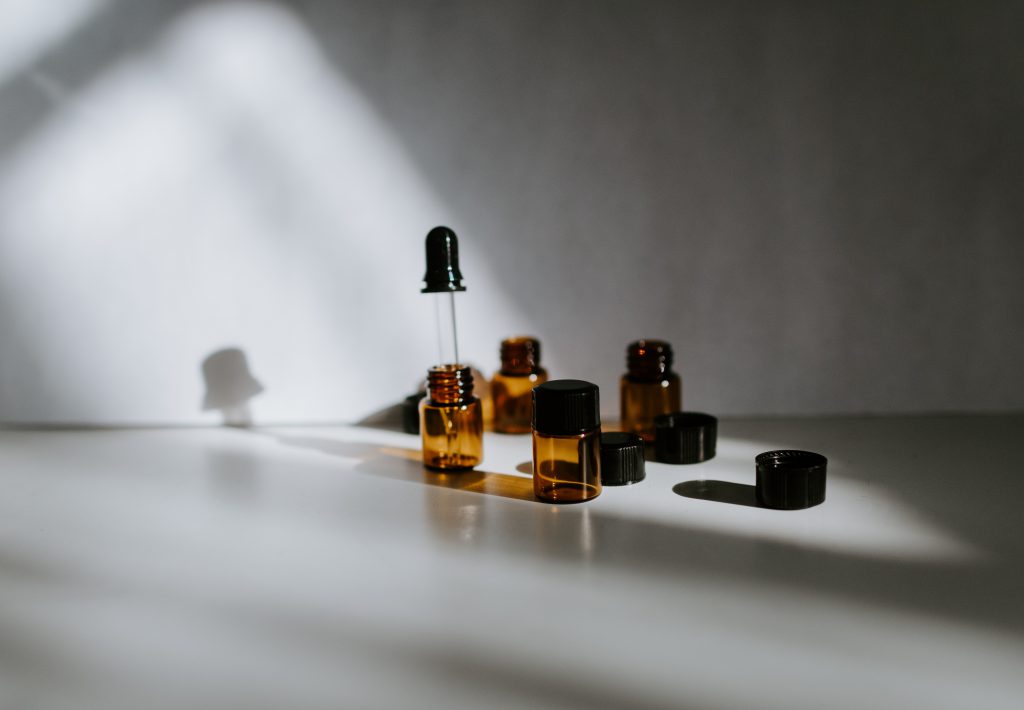
His back hurt, he was anxious, he didn’t like his job. Daniel was miserable. He was also about a year sober and not doing the work sobriety requires. On a trip to Kentucky, the Discovery Place alum passed a kratom shop. He’d heard about the herbal substance known for its opiate-like effects online and had already done some research on it.
“I thought it was 100% okay, but at the same time, I didn’t tell anybody about it,” says Daniel. “It’s crazy how it snuck up on me.”
Despite being a recovering opioid addict, Daniel made up his mind to try kratom. Within three weeks, he was back on heroin.
“My brain tricked me into this kratom thing, and then the next thing I know, I’m on my way to pick up heroin,” says Daniel. “On the way there I was contemplating, ok, I’m about to burn everything to the ground. I’m about to lose my wife, my kids, the house, and I just did it anyway. My brain was already delusional.”
Illegal in six states, Washington D.C., and three individual counties in California, Colorado, and Florida, kratom has been linked to at least 44 deaths. It is pending a Schedule I classification—the same as heroin, ecstasy, and LSD—from the Drug Enforcement Administration (DEA). But what is this mostly legal and unregulated drug?
Read on to learn more about kratom and why multiple government agencies are so concerned about its growing presence.
What is kratom?
Native to Southeast Asia, kratom is a plant with chemical compounds that interact with the brain’s opioid receptors. When research from the Food and Drug Administration (FDA) in early 2018 showed that compounds found in kratom act like those in prescription-strength opioids, the agency declared kratom an opioid.
Used as both a stimulant and a sedative, the herbal substance can provide a boost in energy and alertness in lower doses and sedation in higher doses.
Often sold online or in head shops, kratom comes in a variety of forms, including extracts, powders, and pills.
What is kratom used to treat?
In a study published in Clinical Toxicology, researchers found that between 2011-2017 there was a 5,000% increase in calls to U.S. poison control centers around kratom use. Out of the more than 1,800 calls, there were 11 deaths, 37 comas, and 113 seizures reported. While the DEA has not yet classified kratom as a Schedule I drug, it has been labeled a drug of concern.
Side effects of kratom use include: nausea, itching, sweating, dry mouth, constipation, seizures, hallucinations, and more. There have also been reports of symptoms of psychosis.
As reported by Medscape, Gottlieb also has concerns about users mixing kratom with other substances: “Cases of mixing kratom, other opioids, and other types of medication are extremely troubling because the activity of kratom at opioid receptors indicates there may be similar risks of combining kratom with certain drugs, just as there are with FDA-approved opioids.” In a number of kratom-associated deaths, other illicit, prescription, and over-the-counter drugs were also found present. In 2016 the Centers for Disease Control and Prevention called kratom “an emerging public health threat.”
There is also significant concern about what people are actually getting when they buy kratom as it is unregulated by the FDA and lacks quality control. There have been multiple reports of salmonella poisoning from kratom, resulting in one retailer issuing a national recall.
Is kratom addictive?
The storeowner who sold Daniel kratom assured him that there would be no withdrawal symptoms. He told him that what he was taking was safe and all natural. But following three weeks of daily kratom use, withdrawal set in on the first day without it. That was the same day Daniel decided to use heroin again.
“The real major warning flags are that number one, people don’t know what they’re getting ,” says Dr. Mayer, a Nashville-based psychiatrist and expert on addiction, “and number two, people need to know that they can get physiologically dependent and have to have it.”
For individuals using kratom to cut back on traditional opioid use or to treat symptoms of opioid withdrawal, Mayer is quick to point out that these people are not actually off opioids if they’re using kratom.
“People think it’s okay. Like marijuana withdrawal, you get in this loop because you think it’s helping you with various and when you stop they come back again. Then when you start they go away, but really that’s withdrawal,” says Mayer.
Just because the substance is derived from a plant does not make it any less harmful. “Claiming that kratom is benign because it’s ‘just a plant’ is shortsighted and dangerous,” said Gottlieb, as reported by Medscape.
Reflecting back on his relapse, Daniel can now see how his mind, void of a program of recovery, quickly deteriorated and rationalized using kratom. And once he felt the plant’s opioid-like effects, it was all over from there.
“I wasn’t doing anything I was supposed to be doing ,” he says. “I just wasn’t content at all, so that was what led me to using kratom in the first place.”
He’s one of the lucky ones who made it back to recovery. Now sober again for more than a year, Daniel’s recovery looks a lot different today than it did before. And when sobriety stays front and center in his life, he doesn’t find it necessary to go looking for the next quick fix.

